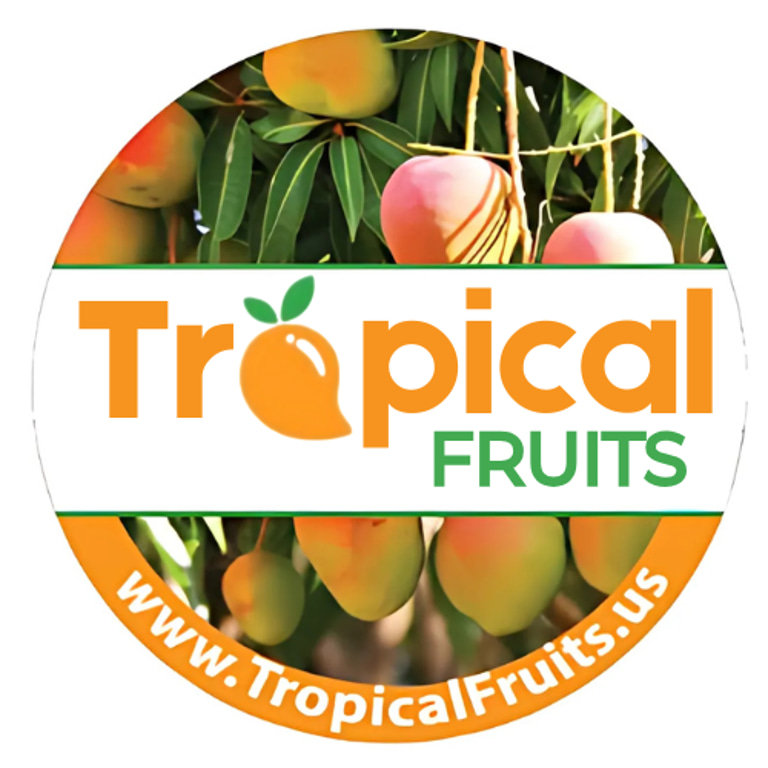!!! Our mission is to create lasting connections through authenticity and experience !!!
Frequently Asked Questions (FAQ)
1. What mango varieties do you grow?
We currently grow Alphonso, Kesar, Mallika, Carrie, Valencia Pride and Lemon Zest mangoes—each known for its unique flavor, aroma, and texture. These are premium varieties, especially loved by mango connoisseurs.
2. When is mango season in Florida?
Our mango season typically runs from June through end of July, with exact timing depending on the weather and variety. Sign up for our newsletter or follow us on social media to stay updated on availability.
3. Do you ship mangoes outside Florida?
Yes! We ship across all mainland U.S. states during mango season (except California). Our mangoes are carefully packed to arrive fresh and in great condition.
4. How are your mangoes different from the imported Indian mangoes?
Ours are grown in the U.S. and shipped within 24 hours of harvest—no quarantine, no long delays. Imported mangoes must go through hot water treatment and international transit, taking 12–16 days from farm to shelf. That process can impact both taste and texture. With us, you get fresh, flavorful mangoes the way they’re meant to be enjoyed.
5. How are the mangoes ripened?
Our mangoes are naturally ripened—no chemicals involved. We harvest them green but fully mature, so they ripen naturally over 6–12 days, often during transit. This lets us ship nationwide without compromising taste or freshness.
Ripening Tips:
Keep mangoes in the original box
Cover with a cotton cloth or napkin
Store at room temp (70–80°F)
Avoid garages—heat can spoil the flavor
6. Are your mangoes organic?
While we’re not certified organic yet, we follow responsible farming practices. We only use FDA-approved fungicides and soil nutrition supplements when absolutely necessary to ensure healthy fruit.
7. What’s the black spotting on some mangoes?
Florida’s humidity can cause natural black spots due to a common fungus. These spots don’t affect taste or quality and are safe to eat. We’re working on natural solutions like hot water treatment (HWT) to reduce this over time.
8. How should I store my mangoes after delivery?
Keep unripe mangoes at room temperature covered by cloth or paper. Once they start to soften and give off a strong aroma, they’re ready! After ripening, you can refrigerate them to extend shelf life by a few days.
9. Did you import the mango seeds?
No, we didn’t start the farm from seeds. Instead, we partnered with trusted nurseries to bring in select mango cultivars from India and graft them here—this is the standard method for growing mango trees of specific varieties. What many people don’t realize is that planting a seed from a store-bought mango won’t guarantee the same fruit. In fact, it usually results in a completely different variety, often with a strong turpentine flavor, which is common in rootstock. And beyond that, seed-grown trees can take seven years or more to bear fruit—only to leave you disappointed in the end. Would you want to wait that long for a mango you don’t even like?
10. Do you offer bulk orders or wholesale pricing?
Yes! If you're a retailer, juice shop, or event planner looking for bulk mangoes, reach out to fresh@tropicalfruits.us and we’ll be happy to help.
11. Can I visit the orchard?
We’re working on offering limited orchard visits in the near future. Stay tuned for updates!
12. How can I place an order?
You can place an order directly through our website during mango season. For custom or bulk orders, email us at fresh@tropicalfruits.us or use the contact form.
13. What are the nutritional contents of a mango?
Mangoes are a powerhouse of nutrients! Just a ¾ cup serving delivers about 50% of your daily vitamin C, making it one of the richest fruit sources. They’re also a great source of folate, copper, and contain 2 grams of fiber (7% DV), along with 8% of your daily vitamin A. The vibrant yellow-orange color of mango flesh isn’t just pretty—it’s a sign of beneficial polyphenols, which are plant-based antioxidants studied for their health-supporting properties.
You can find nutrition and lots of interesting information about the mango here.
14. Can I freeze the mango?
If you have extra mangos and space to spare in your freezer, you can easily freeze your fresh, ripe mangos for later use! Ripe mangos can be frozen for up to 6 months, cut, or pureed. Simply wash, slice, and dice your ripe mangos, arrange the slices on a flat baking sheet, cover with plastic wrap, and place them in the freezer. Once the mango slices are frozen, store them in an airtight, sealed container or freezer bag. You can also puree mango in a food processor or blender, pour it into an airtight, sealed container, and place it in the freezer.
Harvest Starts June 1st week
Fresh mangoes from our family farm in Florida.
© 2025 Florida Tropicals LLC. All rights reserved.
